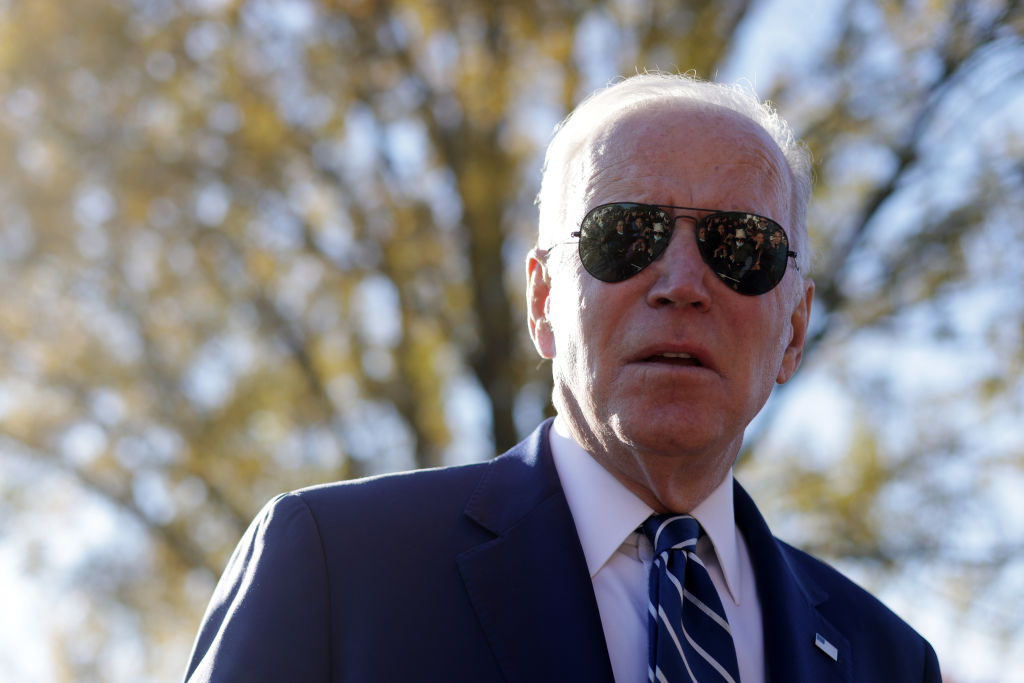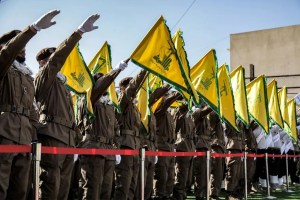President Joe Biden talks the liberal internationalist talk but walks the realist walk. The recent Summit of Democracies wasn’t idealism but part of a strategy to contain China and Russia. Internationalist rhetoric aside, Biden has a dark Realpolitik side — which explains why he was able to survive so many decades in Washington and get elected as president.
Some of my friends on the right have criticized me for recommending Biden for the diplomatic move that should have earned him the 2021 Machiavelli Award. Announcing a new military pact with Britain and Australia (AUKUS) to deter China stabbed France in the back — or to put it another way, emulated the modus operandi of traditional French diplomacy.
Getting out of the mess called Afghanistan — even if that meant abandoning a campaign to bring democracy and improve women’s rights — also amounted to an exercise, albeit crude, in Realpolitik. Charles de Gaulle, who said au revoir to Algeria and turned his back on the French settlers there, would have approved.
President Kennedy, the icon of American liberal internationalism, pledged in his inaugural address that America would “pay any price, bear any burden, meet any hardship, support any friend, oppose any foe, in order to assure the survival and the success of liberty.” But then he made a secret deal with the Soviets to remove US missiles from Turkey as part of an agreement to end the 1962 Cuban Crisis. Apparently “any price” didn’t include a nuclear war.
We learned about the 1962 secret deal with Moscow several years later. Which raises the following speculation: did Biden pledge to Vladimir Putin during their recent virtual meeting that he would not support granting NATO membership to Ukraine?
I do hope that he did. Notwithstanding cries from the internationalist crowd, a military confrontation with Russia over Ukraine is not in the US national interest. That is exactly what Trump would have done.
Perhaps that is wishful thinking on my part — like my hope that Biden would reveal his Realpolitik side in dealing with Tehran, and resolve the crisis over the Iran nuclear deal by averting a military confrontation with Iran while strengthening the position of US allies in the Middle East.
The usual neoconservative suspects have been experiencing a psychotic breakdown of sorts in the face of a United States that has been retreating from the Middle East under three presidents. They are fantasizing about a US-Iran war that would draw America back into a region where it always seemed to end up in some sort of a costly military quagmire as it tries to solve unsolvable problems.
If you agree that it’s time to reduce the American military presence in the Middle East, the main strategic error the US made wasn’t tearing up the Iran nuclear deal in 2018, but signing it in 2015. That turned Washington into a guarantor of the balance of power in the region. But the chances of Iran violating the accords, destabilizing the Middle East, and provoking a response by its adversaries there were higher than 50 percent.
The bottom line was that the US placed itself in a lose-lose situation. Allowing Iran to strengthen its strategic status, by providing it with the diplomatic and financial incentives to do so, ran contrary to the interests of America’s partners, Israel and the Arab Sunni states, that regarded the Islamic Republic as an existential threat.
But then if you consider revoking the nuclear deal in face of Iranian aggression, you put yourself in an impossible situation, in which your two choices are either challenging Iran and risking a military confrontation with it or appeasing Tehran and threatening the interests of Israel and Saudi Arabia. Either way, Iran comes out as a winner.
Instead, consider the 2020 Abraham Accords as a model for a cost-effective way for the US to deal with Iran and pursue its Middle East goals. The United States should send a clear message to Israel and the Sunni Arab states led by Saudi Arabia: we’ll help you stand up to Iran and to ensure that the ayatollahs don’t get hold of nukes, through solid diplomatic and military support.
America would help its partners help themselves — and without fighting their wars. The US would instead serve as a balancer of last resort in the Middle East, intervening directly only if Iran gains the upper hand and threatens to obliterate the balance of power.
That is what the US did when it joined World War II. Nazi Germany and imperial Japan threatened to take over Eurasia: not a direct threat to America. The US didn’t go to war against the Soviets when they posed a similar danger, but restrained them through the containment strategy.
This is also the way the US helped end the Iran-Iran war. Providing military assistance to Saddam Hussein’s Iraq helped prevent an Iranian military victory and restored the balance of power in the Persian Gulf. So did forcing Saddam Hussein out of Kuwait in 1990.
If anything, an activist US military interventionist policy in the Middle East sends the wrong message to its allies. It creates a “moral hazard” — to use an economic term — by providing allies with disincentives to take care of their interests and incentives to rely on American protection. Now read this week’s headline in the Wall Street Journal, a report on the first-ever official meeting last Monday between Israel’s prime minister and the leader of the UAE: “Fear of Iran, Shrinking U.S. Role in the Middle East Push Rivals Together.”
No, don’t expect Israel and the Arabs to form a Middle Eastern version of NATO any time soon. But when they complain that America is abandoning them, it forces them to work together on devising a strategy to contain Iran.
President Obama’s fantasy was that the nuclear accord with Iran would encourage Tehran to become more “moderate” and help stabilize the Middle East. It did just the opposite. Revoking it while encouraging the formation of an alliance between Israel and the Sunni Arab states helped shift the balance of power in their direction and weaken Iran’s strategic position. But now Iran has concluded that it can squeeze the American cojones, recognizing that like his predecessor, President Biden doesn’t have the support to launch military strikes against Iran’s nuclear sites, a move bound to lead to further military confrontation with Tehran.
President Biden can change this Iranian calculus by sending a message to the ayatollahs through intermediaries like Qatar. He should make it clear that as long as Tehran refuses to give-up its nuclear ambitions — a return to a revised deal would be the first step — his administration will not oppose (no need to use the word “support”) any move by Israel to protect its legitimate national security interests.
In that context, the US would veto any UN Security Council resolution condemning Israel for its move, and, more important, it would use leaks to the press to suggest that it would provide Israel with refueling tankers that could be critical to attacking Iran’s nuclear sites, as well as the Massive Ordinance Predator (MOP), aka bunker-busting-bombs, that could penetrate Iran’s nuclear bunkers.
How would Iran respond to such an challenge? Threaten to attack American targets — which it does anyway — and then justify a massive US military response? Plead with the Russians and the Chinese to protect them, when it’s clear that they would breathe a sigh of relief in Moscow and Beijing if the Iranian nuclear program was destroyed?
Iran could certainly threaten to employ its regional proxies, Hezbollah and Hamas, to strike Israeli civilian targets, including Haifa and Tel Aviv. That could provide Israel with an opportunity to devastate the two terrorist groups. Activating the Shiite militias in Iraq or the Houthis in Yemen could also invite an appropriate American and Saudi response without triggering an all-out regional war.
The threat of unleashing Israel and the Sunni-Arab bloc against Iran should demonstrate to the ayatollahs that it’s possible for the US to stabilize the balance of power in the region without direct military intervention. That would cut the Islamic Republic to its real strategic size and strengthen the US position in the Vienna talks. Time for President Biden to expose his dark Realpolitik side?


















